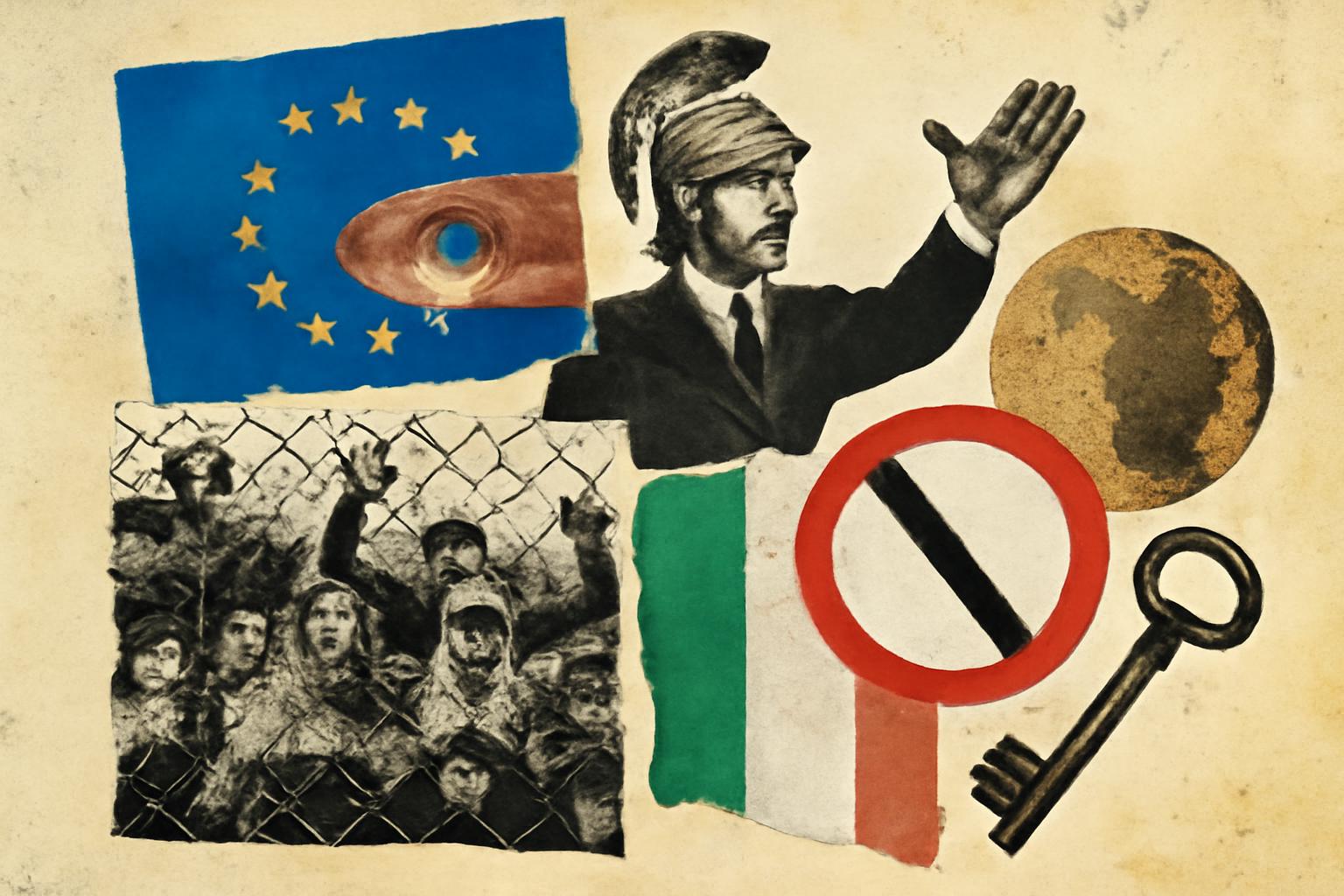Once again, the fatal conceit of political centralization and bureaucratic overreach is on garish display. The sovereign right of individuals to choose their own voluntary associations — where to live, whom to contract with, how to pursue happiness — is trampled by both Rome and Brussels, who posture as “protectors” even as they inflict misery upon the individual.
Nozick’s minimal state is turned upside down: Instead of restraining violence and theft, the state’s border regimes and asylum apparatus become mechanisms for arbitrary detention, denial of self-ownership, and collective coercion. The Italian government tries to outsource its dirty work to Albania, using “safe country” fictions to expedite warehousing of desperate people. The EU, meanwhile, hoists itself into the role of universal arbiter, dictating the finespun details of which foreigners get which bureaucratic graces, and under what “transparent” pretense.
Hayek warned relentlessly of the “pretense of knowledge” — and here it is, where “data” and “analysis” justify state violence and exclusions. Classifying whole nations as “safe” (or not), yet permitting administrators the leeway to declare exceptions for certain victim groups, is central-planning folly of the highest degree. Who decides? The political caste and their hired “experts.” What is the result? Legalist wrangling, years of purgatory for applicants, and ever-expanding budgets for the carceral state.
Ayn Rand would recoil at the spectacle: the primacy of group identity, state-administered border quotas, and the myth that “public good” allows the trampling of personhood. No state or EU court has the moral legitimacy to corrall migrants at gunpoint, to remove their agency, or to assign them value according to “risk statistics.” These people do not belong to the Italian state, nor to the EU — they own themselves, and no bureaucrat has rightful claim to judge their fate.
The entire edifice of migration law is anathema to liberty. Every “asylum system,” every “screening center,” every “rapid procedure,” is an artifact of state power and collectivist hubris. The market would allocate opportunity; voluntary associations would offer support; peaceful people would trade, work, and flourish without permission or nationality stamps.
Intergovernmental fixes, endless litigation, more centralized oversight — these merely polish the bars of the cage. The only moral solution is radical: abolish coercive immigration controls, acknowledge the inviolable rights of self-determining individuals, and let associative freedom (not bureaucratic edict) shape our communities. Until then, both Brussels and Rome deserve nothing but contempt for perpetuating the machinery of state violence and the ugly fiction of the “public good.”
